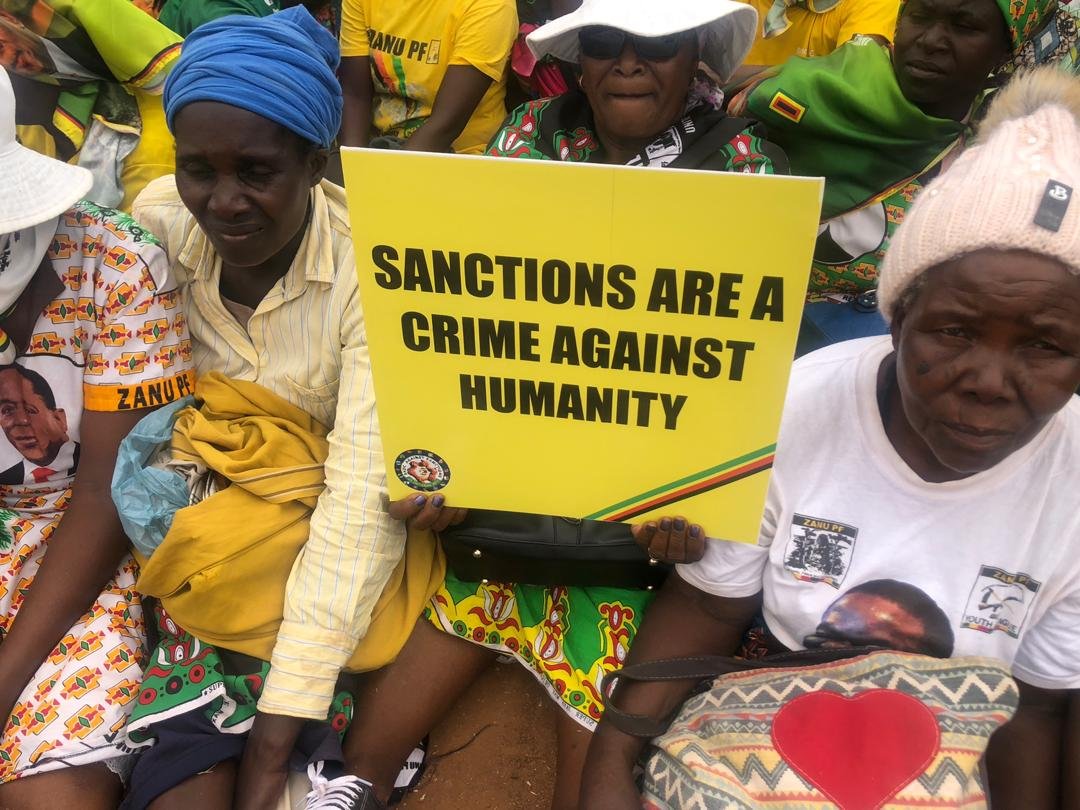Staff Reporter
The Chinese embassy in Zimbabwe has called for the lifting of the illegal sanctions imposed by the West, saying they are against external interference in Zimbabwe`s affairs.
The embassy said this on its Twitter handle, @ChineseZimbabwe yesterday, responding to Preliminary findings of the United Nations Special Rapporteur, Professor Alena Douhan, who visited Zimbabwe in October to assess the impact of sanctions.
“China calls for lifting of the illegal sanctions on Zimbabwe as soon as possible, and supports Zimbabwe in opposing external interference and pursuing the path of independent development,” posted the Chinese embassy.
China has long been an ally of Zimbabwe, even when sanctions were imposed in the early 2000s. China says the sanctions have seriously damaged the country`s ability to develop its economy as they spook investors, disrupt financial transactions between Zimbabwe and foreign countries. The sanctions have also disabled Zimbabwe`s access to credit from international financial institutions, which are needed for the country`s development.
The preliminary report by Professor Douhan says the unilateral sanctions, secondary sanctions and over-compliance in their complexity, have inhibited the building of essential infrastructure and international and inter-institutional cooperation necessary for the achievement of the Sustainable Development Goals.
“The designation of senior State officials as well as companies owned or controlled by them makes foreign companies and banks unwilling to do business with Zimbabwe`s public sector, preventing the Government from getting revenue for the exercise of its public functions and provision of essential services, resulting in the violation of labour and social rights of the people involved in the public sector whose salaries are reported to be much lower than in the private sphere. This has led to rising unemployment, especially among the most qualified professionals (engineers, doctors, teachers, university professors), judges, police officers, which at times is reported to reach 30-50 percent,” reads part of the report.
The report also revealed that the sanctions have prevented the Government from using resources to develop and maintain essential infrastructure, disaster response plans and for social support programmes, which has a devastating effect on the whole population of Zimbabwe, especially those in extreme poverty, women, youth, children, medical workers, and people with disabilities or life-threatening or chronic diseases, particularly in rural areas.
Professor Douhan`s report says the sanctions have forced the Zimbabwean Government, banks, public institutions, private companies and individuals to look for alternative ways to participate in international trade by involving third parties, using alternative informal non-transparent mechanisms of trade and payments, thus adding to corruption rather than suppressing it, preventing the participation of Zimbabwe and its people in international cooperation, adding to the isolation of the country, impeding Zimbabwe`s achievement of the Sustainable Development Goals, and undermining the right to development of the people of Zimbabwe.
Professor Douhan`s final report is expected to be presented to the United Nations Human Rights Council in September 2022.
Since 2001, China has faced growing pressure from the West to stop financing Zimbabwe. China defends itself by saying it does not interfere in the domestic affairs of other countries.




